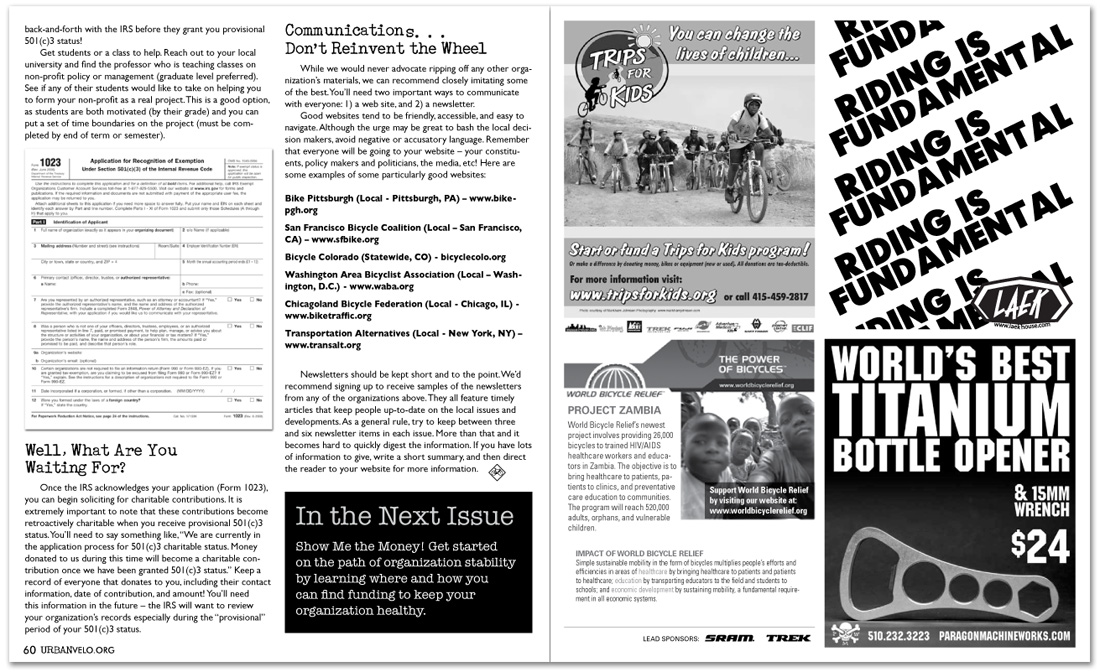

|
||||
Starting a Local Advocacy Organization - Part IIcontinued back-and-forth with the IRS before they grant you provisional 501(c)3 status! Get students or a class to help. Reach out to your local university and find the professor who is teaching classes on non-profit policy or management (graduate level preferred). See if any of their students would like to take on helping you to form your non-profit as a real project. This is a good option, as students are both motivated (by their grade) and you can put a set of time boundaries on the project (must be completed by end of term or semester). Well, What Are You Waiting For?Once the IRS acknowledges your application (Form 1023), you can begin soliciting for charitable contributions. It is extremely important to note that these contributions become retroactively charitable when you receive provisional 501(c)3 status. You’ll need to say something like, “We are currently in the application process for 501(c)3 charitable status. Money donated to us during this time will become a charitable contribution once we have been granted 501(c)3 status.” Keep a record of everyone that donates to you, including their contact information, date of contribution, and amount! You’ll need this information in the future – the IRS will want to review your organization’s records especially during the “provisional” period of your 501(c)3 status. Communications... Don’t Reinvent the WheelWhile we would never advocate ripping off any other organization’s materials, we can recommend closely imitating some of the best. You’ll need two important ways to communicate with everyone: 1) a web site, and 2) a newsletter. Good websites tend to be friendly, accessible, and easy to navigate. Although the urge may be great to bash the local decision makers, avoid negative or accusatory language. Remember that everyone will be going to your website – your constituents, policy makers and politicians, the media, etc! Here are some examples of some particularly good websites: Bike Pittsburgh (Local - Pittsburgh, PA) – www.bike-pgh.org San Francisco Bicycle Coalition (Local – San Francisco, CA) – www.sfbike.org Bicycle Colorado (Statewide, CO) - www.bicyclecolo.org Washington Area Bicyclist Association (Local – Washington, D.C.) - www.waba.org Chicagoland Bicycle Federation (Local - Chicago, IL) - www.biketraffic.org Transportation Alternatives (Local - New York, NY) – www.transalt.org Newsletters should be kept short and to the point. We’d recommend signing up to receive samples of the newsletters from any of the organizations above. They all feature timely articles that keep people up-to-date on the local issues and developments. As a general rule, try to keep between three and six newsletter items in each issue. More than that and it becomes hard to quickly digest the information. If you have lots of information to give, write a short summary, and then direct the reader to your website for more information. In the Next Issue...Show Me the Money! Get started on the path of organization stability by learning where and how you can find funding to keep your organization healthy. |
|
|